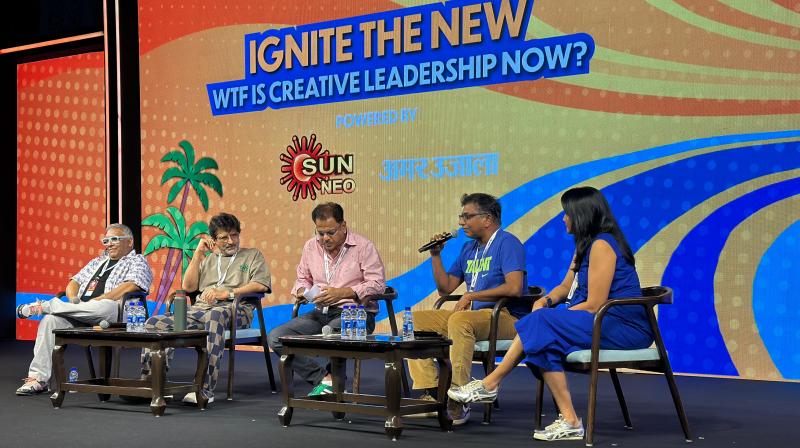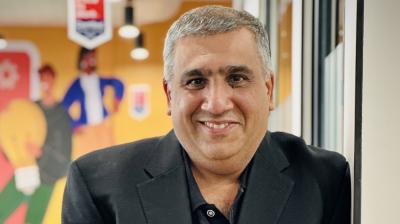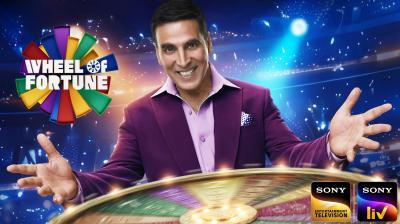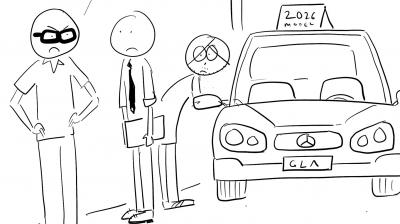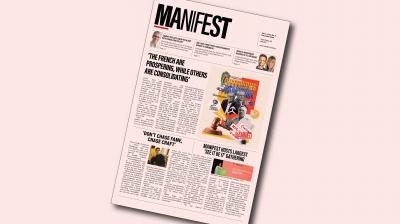On the second day of Goafest 2025, the spotlight turned to creativity during the day, more specifically, the changing face of the chief creative officer (CCO).
What once was a role focused squarely on ideas and aesthetics is now being pulled in multiple directions. A panel gathered to discuss this evolution, dissecting the creative leadership role at a time when agencies are transforming into hybrid organisms - part consultancy, part tech hub, part cultural force.
The session, moderated by Rohit Ohri, founder, Ohriginal, featured Bobby Pawar, poet, storyteller, consultant; Sonal Dabral, creative consultant, filmmaker, founder, Tribha; Senthil Kumar, CCO, VML India; and Lulu Raghavan, president, APAC, Landor.
Beyond the work: Culture, context, and clarity
Pawar set the tone for the session with poetic precision.
He said, “The CCO’s role is not to be the chief quality control inspector. It’s not to make the work better, but to make the people who create the work better.”
In his signature irreverent style, Pawar lamented how the CCO is now being expected to take on roles that stray far from their original remit - handling office logistics, managing internal politics, and firefighting on behalf of clients.
“It’s like asking the CCO to be the heart, the brain, the spine, the arms and other unmentionable body parts of the agency,” Pawar said, drawing laughter and nods from the audience.
Instead, Pawar argued, the CCO should be 'the instigator and the cultivator-in-chief', someone who nurtures talent and builds a culture where creativity can thrive.
Culture as currency
Raghavan offered a macro lens on the topic, urging the room to think beyond traditional definitions of creativity.
“Firstly, the CCO is the holder of a unified vision. With today’s fragmented media landscape, the brand promise has to be emotionally resonant across touchpoints, and that requires someone with singular clarity," she shared.
Raghavan said that the role has outgrown its ‘advertising only’ boundaries. A modern CCO must understand product design, user experience, and innovation - capable of leading creativity across business solutions, not just campaigns.
“I truly believe the chief creative officer has to be the 'chief culture officer',” she said. “They’re a magnet for talent. Their reputation helps agencies thrive.”
Raghavan cited a key quote from another Goafest speaker, Rishad Tobaccowala and what he shared in his session on day one. “Don’t water your grandfather’s plant - be the parent of tomorrow.”
To Raghavan, this means CCOs must foster a culture of excellence, agility, and evolution.
A crisis of identity
Dabral gave the discussion a historical frame, looking at how the industry’s creative core has eroded. He said, “There was a time we sold products and built brands through great creative work—and that’s what brought in the money. Then we got greedy. Agencies said: Why should consultants take all the cash? We can be consultants too. We forgot that our job was to be creative.”
Dabral warned that as agencies diversified their service offerings, creativity was slowly pushed to the margins and with it, the CCO role became diluted.
But he also offered hope: “When I see some influencers and content creators today, I feel the creative directors of tomorrow may well come from that world. They know people, they understand the culture. Just like Pharrell at Louis Vuitton.”
Ultimately, for Dabral, the CCO must be someone who fights for ideas—unflinchingly.
“An agency must never bend to please everyone. Bend the wrong way, and you break your back," he remarked.
Leading from the front
Kumar injected an optimistic note into the conversation. He said, "Creativity is still alive and thriving. The CCO's role has changed, yes, but that change is a constant.”
He likened the modern creative leader to a cinema artist who plays multiple roles performer, director, talent scout and coach.
Kumar added, “You have to be a playing captain. Don’t just sit back and watch the team. Lead from the front.”
He also acknowledged the pressures of multitasking but saw it as an opportunity to enhance the creative instinct.
The case for uncompromising support
Bringing the conversation full circle, Dabral called for agencies to provide unconditional support to their creative leaders.
He expressed, “Things like fearlessness, flamboyance—those qualities are being marginalised. CCOs are becoming too rational. They’ll stop being the heart of the agency if this continues.”
All panellists agreed: the CCO must be central to the agency’s vision - not just symbolically, but structurally, with respect, resources, and a defined strategic seat at the table.
Raghavan summarised it succinctly, she said, “Clients today want to speak to one person. That person needs gravitas and context. A creative leader who is insightful, strategic, and inspiring not a glorified project manager.”
To that, Pawar offered his characteristic sting: “If clients only want to speak to one person, then why does that one person need anybody else?”
Rapid-fire: One word to define the CCO
To wrap up the session, each panellist shared one word that best defines the CCO today:
Pawar: Instigator – “The spoon that stirs the coffee.”
Dabral: Creative curator – “Someone culturally rich, shaping sensibilities even with less hands-on time.”
Raghavan: Versatility.
Kumar: Playing captain.
The panel made it clear: the CCO is not a relic of the past. Rather, it’s a role being reborn - one that must balance culture and commerce, instinct and insight, coaching and creating. If the CCO is given the space, the team, and the respect to do what they do best, agencies might just rediscover the power of creativity in its truest form.
As Dabral put it, with a touch of longing and belief: “The creative director has to be the heart of the agency again. That’s the fight worth having.”

.jpg)
